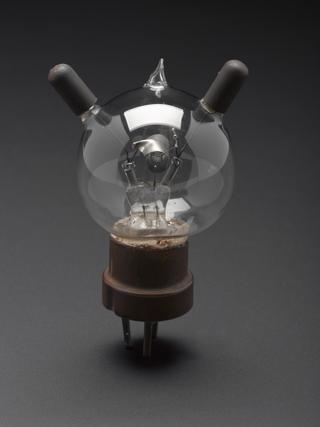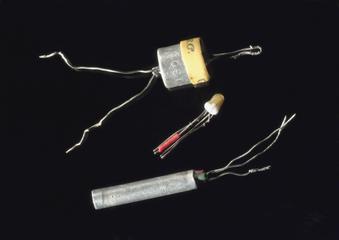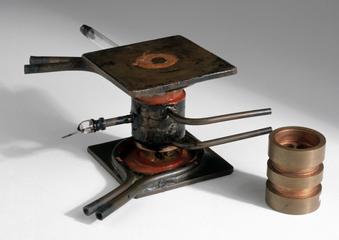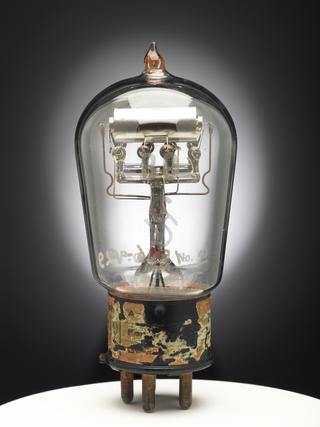
Lead sheathed domestic power cable
- PART OF:
- The Bob
- Made:
- 1940-1950 in unknown place
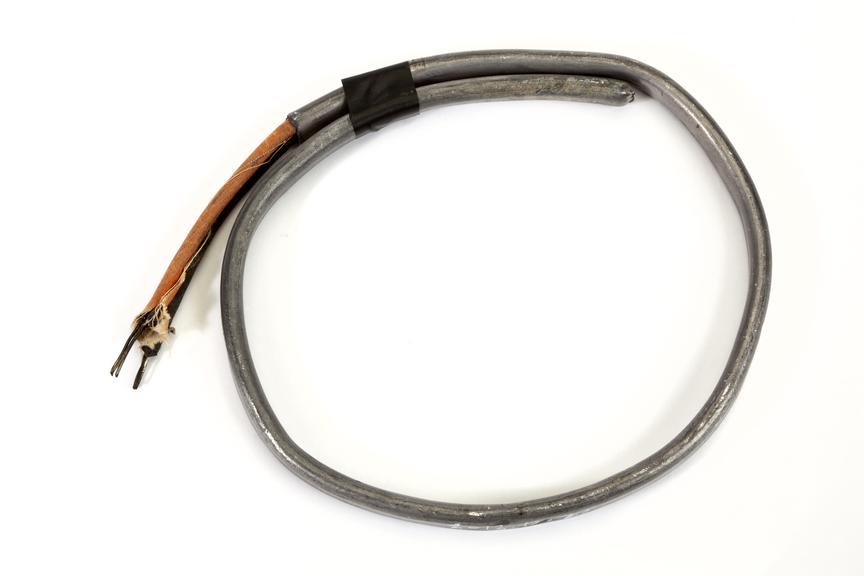
Lead sheathed domestic two core power cable, about 1948. Small coil of lead-sheathed electrical power cable showing red and black conductors at one end.
Part of the Bob Gray collection of electrical objects.
In the 1930s and 40s, most electrical wiring was comprised of single core conductors insulated by rubber with a braided covering and contained within protective steel conduit. Flexible, multi-core cable for mains voltages was little used in permanent wiring. This lead-sheathed cable was an expensive but convenient product occasionally used by householders for do-it-yourself modifications, such as adding and extra socket, to avoid the tricky job of cutting and joining screw threads on steel conduit. By the late 1940s it was superseded by reliable vulcanised rubber coverings and, by the 1960s, PVC. The lead sheath acts as an earth conductor.
Details
- Category:
- Electronic Components
- Object Number:
- Y2012.15.71
- Materials:
- lead (metal), metal (unknown) and textile
- Measurements:
-
600 mm x 10 mm, 20 g
- type:
- electrical component
- credit:
- Mr Robert Gray
